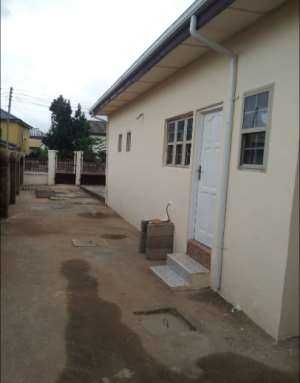
Buildings consume more energy than any other sector of the global economy. Globally, buildings constitute 34% of global final energy consumption, which is more than industry and transport.
The International Energy Agency (IEA) projects global building energy consumption to grow by 30% by 2030. Most of that growth will originate in developing countries where the urban building stock is expected to more than double by 2030. In India, 75% of buildings expected to be in existence by 2030 have yet to be built.
However, opportunities available with existing technologies could deliver 30% energy savings in the building sector by 2030
The overwhelming share of energy use comes from powering the building's systems for its lifetime. To avoid locking-in these costs for the 30 or 40 year lifetime of new buildings, it is especially critical for developing countries to take advantage of cost-effective, energy-efficiency opportunities in new building construction.
Reviewing the building code is therefore one of the solutions to ending Ghana's cyclical power crisis.
Building energy codes are legal requirements regulating the energy performance of building designs and their compliance during construction. The enforcement of energy codes is an effective policy instruments to reduce energy waste over buildings' life cycles.
Most industrialised countries adopted building codes during the oil price shocks of the 1970s and have since achieved broad-based enforcement. Since their inception, codes in Western Europe and the USA have facilitated a 60% improvement in building energy efficiency.
Many developing countries began developing codes in the 1990s, although institutional and economic barriers have hindered enforcement and compliance. Given the building sector's tremendous size and potential for efficiency gains, building energy codes are a critically important policy instrument for energy efficiency.
Building energy codes are intended to establish progressive standards for building practices, to encourage market innovation, and to achieve compliance through the supply of effective enforcement.
It is therefore important to urgently review Ghana's Building Code to include renewable energy mandates. Renewable energy mandates require a certain energy share or equipment requirement for a building to come from renewable energy sources. By amending the national or local building codes to include renewable energy mandates, new buildings can reduce their reliance on traditional energy sources and enhance energy security.
For example, solar hot water mandates have been used in many countries to quickly stimulate demand for renewable energy. Israel, Spain, India, and several other countries have a national-level solar hot water mandate. Brazil's programme, “My House, My Life,” is planning to install 300,000 to 400,000 solar water heaters in social housing projects in the next few years. Overall, the Brazilian program is targeting an increase from 6 million meters squared of total solar collector area by 2010 to 15 million by 2015.
Also, one potential non-economic barrier to the deployment of small scale renewable energy projects is the lack of grid access. Allowing more flexible access to the energy grid can be a useful policy to promote renewable energy.One such policy is net metering or net billing.
Net metering is a power supply arrangement that allows customers to supply energy to the electricity distribution grid from their own generation systems. With net metering, households or customers use the electricity generated from their small scale renewable energy source when they need it, and when there is a surplus of electricity, the households or customers can sell any surplus electricity they do not need. Customers are only charged for their net electricity use, total consumption minus self-generation.




 Akufo-Addo’s govt is the ‘biggest political scam’ in Ghana’s history – Mahama ja...
Akufo-Addo’s govt is the ‘biggest political scam’ in Ghana’s history – Mahama ja...
 Performance Tracker is not evidence-based — Mahama
Performance Tracker is not evidence-based — Mahama
 Four arrested for allegedly stealing EC laptops caged
Four arrested for allegedly stealing EC laptops caged
 $360 million IMF bailout not enough for Ghana – UGBS Professor
$360 million IMF bailout not enough for Ghana – UGBS Professor
 Shrinking Penis Allegations: Victim referred to trauma hospital due to severity ...
Shrinking Penis Allegations: Victim referred to trauma hospital due to severity ...
 Adu Boahen Murder: Case adjourned to May 9
Adu Boahen Murder: Case adjourned to May 9
 ‘I've health issues so I want to leave quietly and endure my pain’ — Joe Wise ex...
‘I've health issues so I want to leave quietly and endure my pain’ — Joe Wise ex...
 Let’s help seek second independence for Ghana before NPP sells the country – Law...
Let’s help seek second independence for Ghana before NPP sells the country – Law...
 New Force aims to redeem Ghana and West Africa — Nana Kwame Bediako
New Force aims to redeem Ghana and West Africa — Nana Kwame Bediako
 ‘I didn't say I would buy Ghana if voted against; I said I’ll buy it back from f...
‘I didn't say I would buy Ghana if voted against; I said I’ll buy it back from f...
